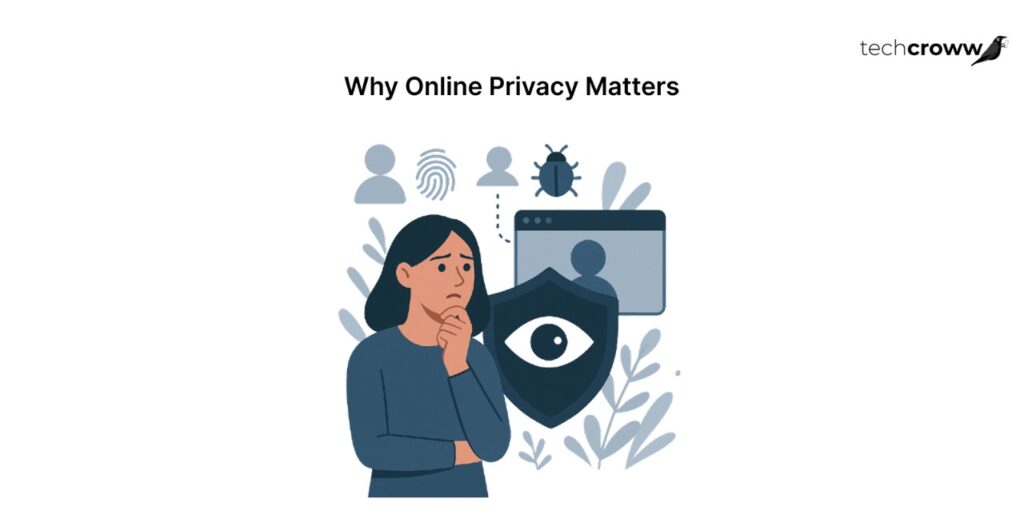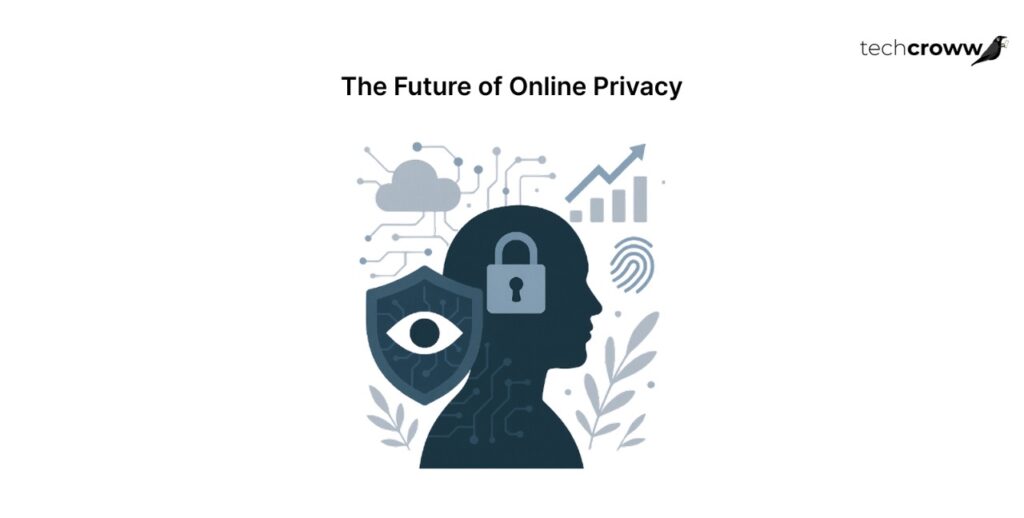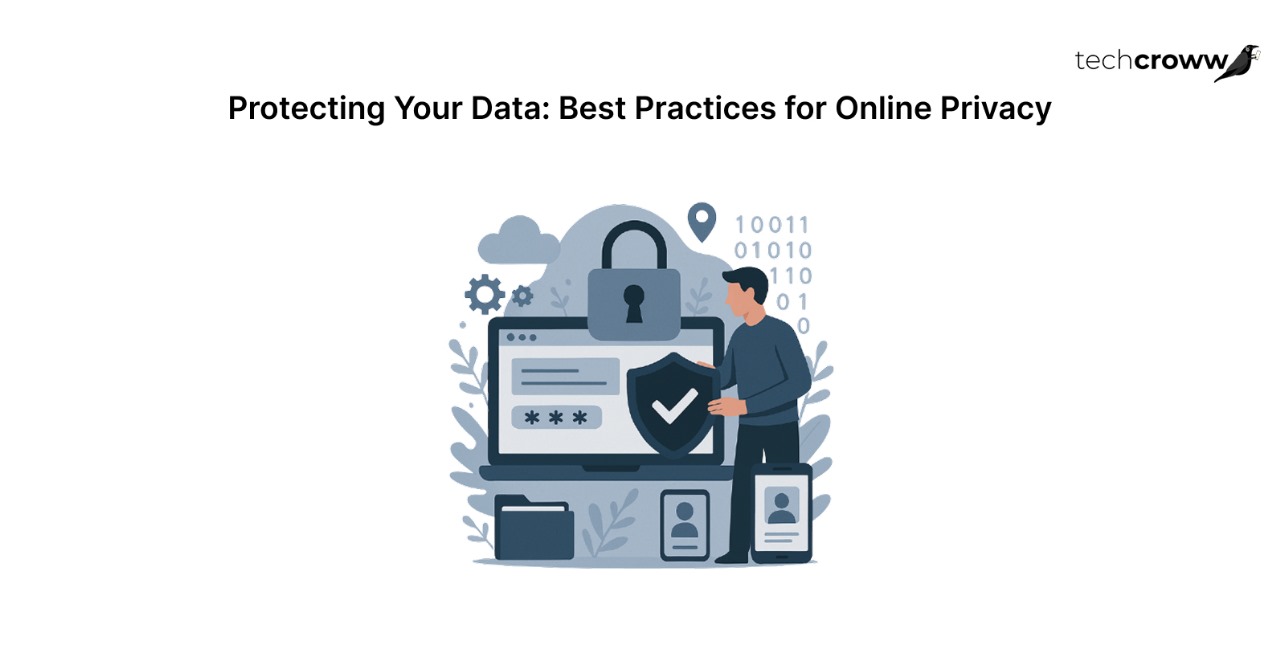In today’s digital world, your personal information is more exposed than ever before. Whether you’re shopping online, posting on social media, or simply browsing the web, you leave behind a digital footprint that can be tracked, collected, and sometimes misused. That’s why online privacy has become one of the most critical issues of the modern age.
This guide will help you understand why online privacy matters and share the best practices you can adopt right now to protect your data from prying eyes, cybercriminals, and data brokers.
Why Online Privacy Matters

Every time you go online, your activities generate data — what you search for, the websites you visit, your social media interactions, and more. This information can be used for:
- Targeted advertising
- Building detailed personal profiles
- Selling your data to third parties
- Phishing or fraud attempts
- Identity theft
In the wrong hands, your private data can lead to serious consequences, from financial loss to reputational damage. That’s why protecting your online privacy isn’t just a technical concern — it’s a necessity for safeguarding your personal and financial well-being.
Best Practices for Online Privacy
Let’s explore key steps you can take to boost your online privacy in 2025 and beyond.
1. Use Strong and Unique Passwords
One of the simplest yet most powerful ways to protect your online privacy is by creating strong, unique passwords for every account.
- Avoid using easily guessable passwords like “password123” or your birthdate.
- Combine uppercase letters, lowercase letters, numbers, and special characters.
- Use a password manager to store and generate complex passwords.
By using unique passwords, you prevent a breach on one site from giving attackers access to your other accounts.
2. Enable Two-Factor Authentication (2FA)
Even the strongest password can be cracked. That’s where two-factor authentication comes in.
2FA adds an extra layer of security by requiring a second form of verification, such as:
- A one-time code sent to your phone
- An authentication app (like Google Authenticator or Authy)
- A hardware security key
Enabling 2FA significantly reduces the risk of unauthorized access to your accounts.
3. Be Cautious About What You Share
Think before you post personal information on social media or public forums. Cybercriminals often use details like your pet’s name, high school, or favorite sports team to guess security questions or passwords.
Limit the personal data you share online, and adjust your social media privacy settings to control who can see your posts.
4. Keep Your Software Updated
Outdated software often contains security vulnerabilities that hackers can exploit. Make sure to:
- Keep your operating system, browser, and apps updated with the latest security patches.
- Enable automatic updates whenever possible.
This simple habit can close security gaps that might otherwise put your online privacy at risk.
5. Use Secure Connections
When browsing the web or entering sensitive information:
- Check for HTTPS in the website address, indicating a secure, encrypted connection.
- Avoid using public Wi-Fi for transactions or logging into sensitive accounts without a VPN (Virtual Private Network).
A VPN encrypts your internet traffic, shielding your data from eavesdroppers on unsecured networks.
6. Limit Data Collection
Many websites and apps collect more data than they need. Here’s how to minimize what you share:
- Decline unnecessary permissions requested by apps.
- Review and adjust privacy settings on services you use.
- Use browser extensions like uBlock Origin or Privacy Badger to block trackers.
- Regularly clear your browser cookies and cache.
Being selective about the data you provide helps reduce your digital footprint.
7. Be Wary of Phishing Attempts
Phishing scams trick you into revealing sensitive information by posing as legitimate entities.
To avoid falling victim:
- Double-check the sender’s email address or phone number.
- Don’t click on links or download attachments from unknown sources.
- Look for signs of scams, such as poor spelling or urgent demands for action.
When in doubt, contact the organization directly through their official website or phone number.
8. Monitor Your Accounts
Even with strong protections, it’s wise to keep an eye on your digital presence.
- Set up alerts for suspicious activity on your bank and credit card accounts.
- Use free tools like Have I Been Pwned to check if your email or phone number has appeared in a data breach.
- Review your account activity regularly for unauthorized logins or transactions.
9. Use Privacy-Focused Tools
Switch to services that prioritize online privacy:
- Search engines: Try DuckDuckGo or Startpage instead of traditional search engines that track you.
- Browsers: Consider browsers like Firefox or Brave, which offer stronger privacy controls.
- Email: Look into encrypted email providers like ProtonMail or Tutanota.
These alternatives help reduce tracking and improve your control over personal data.
The Future of Online Privacy

In 2025, online privacy is no longer just a personal responsibility — it’s also a public conversation. Governments, businesses, and advocacy groups in the U.S. and around the world are pushing for stronger privacy laws and regulations.
New technologies like artificial intelligence and the Internet of Things (IoT) bring both opportunities and challenges for online privacy. As more devices connect to the internet, safeguarding your data requires both awareness and action.
By adopting the best practices outlined above, you can take meaningful steps to protect your data and maintain control over your digital life.
Final Thoughts
Your online privacy is worth protecting. While no solution offers 100% security, combining multiple strategies — from strong passwords and two-factor authentication to secure connections and privacy-focused tools — can dramatically lower your risk of data exposure.
Start small: update your passwords, enable 2FA on your key accounts, and review your app permissions today. Over time, these habits will help you navigate the digital world with greater confidence and security.


